Save the Environment: Eat Bacon

By JoAnn Alumbaugh, Editor, PORK Network
It’s doubtful you’ll see a headline similar to the one above in consumer media, but it’s true. A study from Carnegie Mellon University (CMU) suggests vegetarian and other plant-based diets could be more harmful to the environment than eating animal protein. Keep in mind, however, that not all fruits and vegetables are the same, and lettuce is a water-based vegetable. Still, the study brings up some important points.
“Following the USDA recommendations to consume more fruits, vegetables, dairy and seafood is more harmful to the environment because those foods have relatively high resource uses and greenhouse gas (GHG) emissions per calorie,” said a news release from CMU.
Published in Environment Systems and Decisions, the study measured the changes in energy use, blue water footprint and GHG emissions associated with U.S. food consumption patterns.
“Eating lettuce is over three times worse in greenhouse gas emissions than eating bacon,” said Paul Fischbeck, professor of social and decisions sciences and engineering and public policy at CMU. “Lots of common vegetables require more resources per calorie than you would think. Eggplant, celery and cucumbers look particularly bad when compared to pork or chicken.”
Fischbeck, Michelle Tom, a Ph.D. student in civil and environmental engineering, and Chris Hendrickson, the Hamerschlag University Professor of Civil and Environmental Engineering, studied the food supply chain to determine how the obesity epidemic in the U.S. is affecting the environment. Specifically, they examined how food sales and service, household storage and use, and growing, processing and transporting food take a toll on resources in the form of energy use, water use and GHG emissions.
Obviously, encouraging people to eat fewer calories and get their weight under control would have a positive effect on the environment. It would also reduce energy use, water use and GHG emissions from the food supply chain by approximately 9%, but it’s important to look at the big picture.
Consumers are constantly told that eating more fruits, vegetables and grains is good for the environment, that livestock emissions are a huge problem, and that changing our diet to be more like the USDA’s recommendations (meaning, less meat) would have a positive effect on the environment as well as our bodies. The CMU study indicates this isn’t the case.
The researchers report that eating the recommended “healthier” foods (a mix of fruits, vegetables, dairy and seafood) increased the environmental impact in all three categories: Energy use went up by 38%, water use by 10% and GHG emissions by 6%.
“There’s a complex relationship between diet and the environment,” Tom said. “What is good for us health-wise isn’t always what’s best for the environment. That’s important for public officials to know and for them to be cognizant of these tradeoffs as they develop or continue to develop dietary guidelines in the future.”
While there wasn’t much coverage of the initial news, there were many articles from major news sources that refuted the study to make it sound less ground-breaking. Rather than be like all those mainstream news sources that love taking one line from a study out of context and building sensationalistic headlines, it’s important to point out that lettuce and bacon are singular examples. A balanced diet with representation from all the important food groups is the key.
Fischbeck said, “You can’t lump all vegetables together and say they’re good,” Fischbeck said. “You can’t lump all meat together and say it’s bad.”
Naysayers are going to automatically believe this study was funded by what they love to call “big ag.” That’s not at all the case: CMU’s Steinbrenner Institute for Environmental Education and Research and the Colcom Foundation funded this research.
Source: https://www.porknetwork.com/news/industry/save-environment-eat-bacon
Categories: Uncategorized
